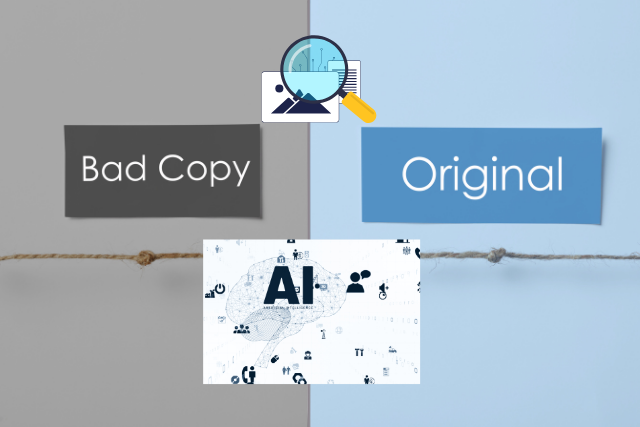Are you tired of spending countless hours sifting through research papers and struggling to keep track of your references? Well, you’re in luck!
With the rise of artificial intelligence (AI), researchers now have access to a wide range of tools that can help streamline their workflow and revolutionize how they conduct research.
In this blog, we’ll explore some of the best AI tools for researchers, from chatbots that can answer your questions in real-time to web-based tools that help you organize your research and generate citations.
Table of Contents
So, whether you’re a seasoned researcher or just starting out, read on to discover how AI can help you take your research to the next level.
Key Takeaways
- AI writing and editing tools like Wordvice AI, Quillbot, and AI Proofreader can enhance writing skills, fix errors, paraphrase text, and provide accurate revisions and suggestions.
- AI research assistance tools like ChatGPT, Scholarcy, and ResearchRabbit can help researchers answer questions, summarize articles, generate ideas, recommend literature, and visualize field connections.
- AI publication and formatting tools like Typeset.io can assist researchers with manuscript templates, formatting, citation management, collaboration, version control, journal selection, and plagiarism detection.
- AI literature search and citation tools like Scite.ai and AI Citation Generator can provide real citations, search citation statements, create dashboards, generate accurate references, and save time formatting references.
AI Writing and Editing Tools
AI writing and editing tools offer researchers the ability to enhance their writing skills and improve the quality and precision of their work.
These tools, such as Wordvice AI, Quillbot, and AI Proofreader, provide various features to assist researchers in their writing tasks. Wordvice AI fixes spelling, punctuation, and style errors; paraphrases and summarizes text; translates non-English sources; and enhances writing skills.
Quillbot helps researchers avoid plagiarism by paraphrasing text, providing vocabulary suggestions, generating content from keywords, and offering explanations and translations.
AI Proofreader is an AI tool specifically designed for proofreading and editing, providing accurate revisions and suggestions to enhance writing quality and precision.
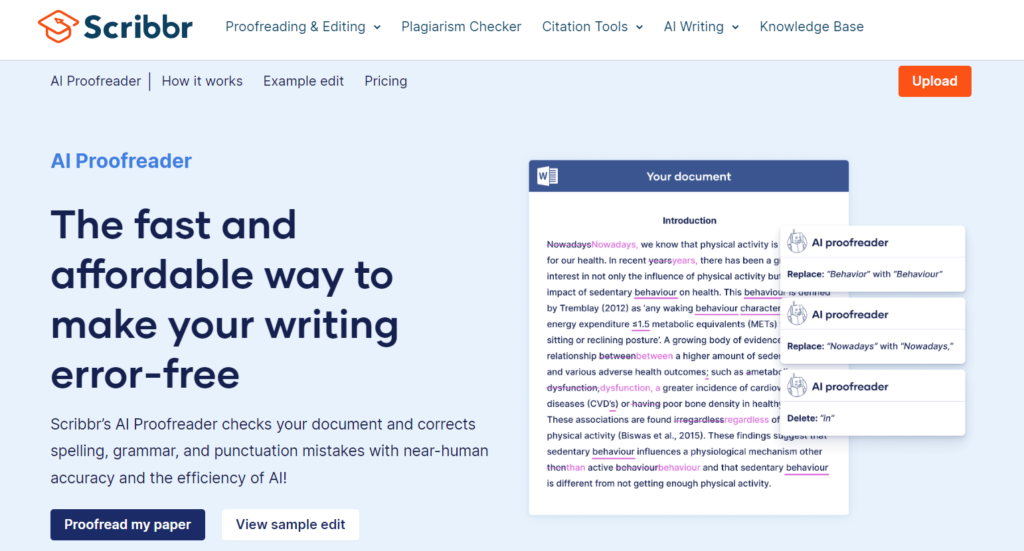
Using AI writing and editing tools, researchers can improve their writing efficiency, produce more polished work, and ultimately contribute to advancing knowledge in their respective fields.
AI Research Assistance Tools
With the advent of AI research assistance tools, researchers now have access to advanced tools to aid them in various aspects of their research process.
These tools provide researchers with valuable assistance in answering research questions, suggesting relevant papers and authors, generating ideas, and correcting grammar and word choice.
For example, ChatGPT is an AI-powered tool that answers research questions and suggests papers, authors, and trends while providing grammar and word choice corrections.
Another tool, Scholarcy, reads and summarizes articles, identifies key information, creates summary flashcards, extracts figures and tables, and offers a searchable database.
These AI research assistance tools streamline the research process, save time, and enable researchers to focus more on the analysis and interpretation of their findings.
AI Publication and Formatting Tools
Providing a comprehensive set of features and functionalities, Typeset.io revolutionizes the publication and formatting process for researchers.
This AI-powered tool offers manuscript templates and formatting tools, making it easier for researchers to structure and organize their work.
It also includes citation management support for various styles, saving researchers time and effort in ensuring accurate referencing. Collaboration and version control features allow multiple researchers to work together seamlessly, streamlining the writing process.
Typeset.io or SciSpace assist with journal selection by providing recommendations based on the topic and scope of the research.
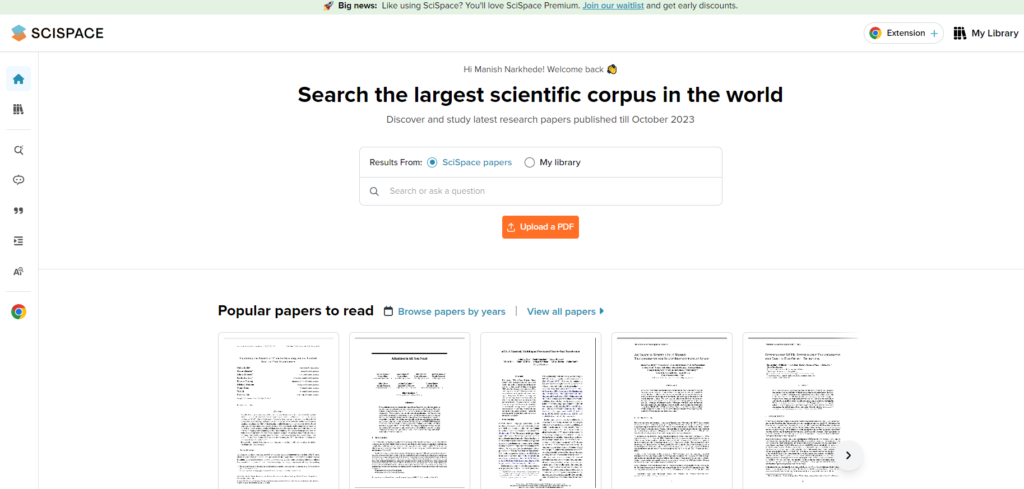
Its plagiarism detection feature helps researchers ensure the originality of their work. With its user-friendly interface and data-driven functionalities, Typeset.io enhances the efficiency and quality of the publication and formatting process for researchers.
AI Literature Search and Citation Tools
How can AI literature search and citation tools revolutionize the research process for scholars and academics?
AI literature search tools can significantly enhance the efficiency and accuracy of the research process.
Platforms like Scite.ai provide real citations to published papers, making it easier for researchers to access and verify sources.
These tools also offer search citation statements, enabling researchers to identify relevant studies and build upon existing knowledge quickly.
AI citation generators ensure accurate referencing and save time formatting references according to various citation styles.
These tools streamline the literature search and citation process, allowing researchers to focus more on analysis and interpretation.
Leveraging AI technology, scholars and academics can improve the quality and effectiveness of their research, ultimately advancing knowledge in their respective fields.
AI Data Analysis Tools
AI data analysis tools offer researchers many capabilities, including extracting insights from large datasets, identifying patterns and trends, conducting statistical analysis, and aiding in data-driven decision-making.
These tools utilize artificial intelligence algorithms to analyze vast amounts of data quickly and efficiently, saving researchers valuable time and effort.
With the ability to handle complex calculations and perform advanced statistical analyses, AI data analysis tools can uncover hidden relationships and correlations in the data that may not be immediately apparent to human researchers.
These tools can generate visualizations and reports, making it easier for researchers to interpret and communicate their findings.
Using AI data analysis tools, researchers can enhance the quality and accuracy of their research, leading to more robust and impactful results.
AI Literature Review Tools
Consequently, researchers can significantly streamline and enhance their literature review process by utilizing AI-powered tools.
These tools offer artificial intelligence to automate the search and selection of relevant articles, summarize key findings, and help identify research gaps. Here are four AI literature review tools that researchers can benefit from:
ConnectedPapers
- ConnectedPapers.com is a website that allows researchers to visualize and explore academic papers and their connections. The website uses a graph-based approach to show how papers are related to each other based on their citations and references.
- Users can search for a paper by its title, author, or DOI, and the website will generate a graph that shows the paper’s connections to other papers. The graph can be customized to show different levels of detail, such as the number of citations, the year of publication, or the journal in which the paper was published.
- ConnectedPapers.com can be useful for researchers who want to explore the literature in a particular field, find related papers, and discover new research opportunities. The website can also help researchers identify key papers and authors in a field and track the evolution of research over time.
Scholarcy
- Scholarcy is an online tool that uses artificial intelligence to help researchers and students read and understand academic papers more efficiently. The tool can automatically summarize papers, extract key information, and generate citations in various formats.
- Users can upload a PDF or enter a URL to a paper, and Scholarcy will analyze the text and generate a summary highlighting the most important points. The tool can also extract key phrases, figures, and tables from the paper and generate a list of references in various citation styles.
- Scholarcy can be useful for researchers and students who want to save time and improve productivity. By automatically summarizing papers and extracting key information, the tool can help users quickly identify the most relevant papers and focus on the most important points.
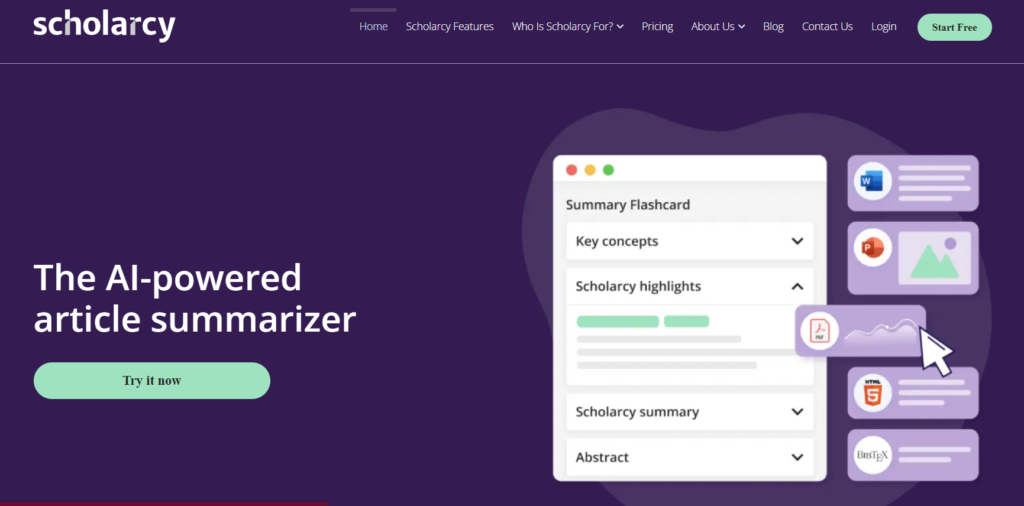
ResearchRabbit
- ResearchRabbit is a web-based tool that helps researchers and students organize their research and streamline their workflow. The tool allows users to create and manage projects, store and organize references, and collaborate.
- Users can import references from various sources, including databases, websites, and PDFs, and organize them into folders and tags. The tool allows users to add notes and annotations to their references and generate citations in various formats.
- ResearchRabbit can be useful for researchers and students who want to stay organized and save time. By centralizing their research and references in one place, users can easily find and access the information they need and collaborate with others more effectively.
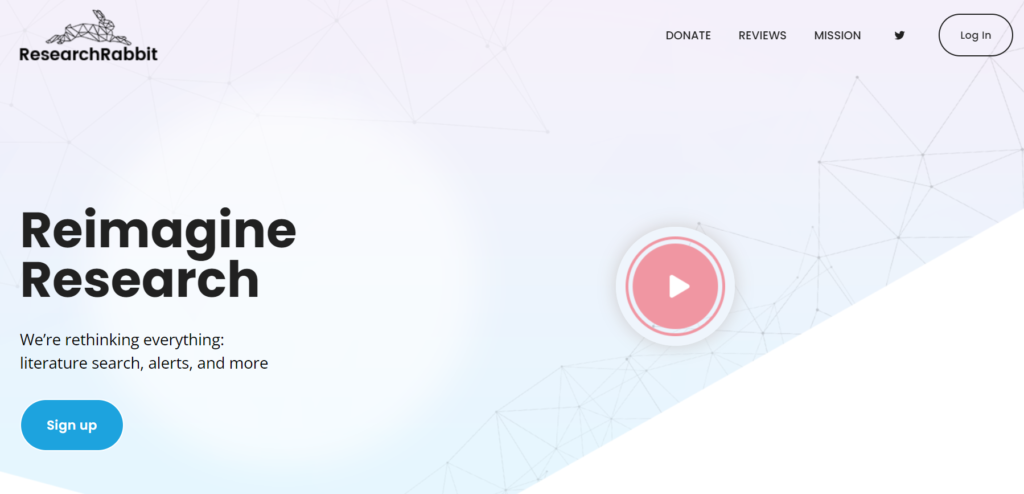
ChatGPT
- ChatGPT is an AI-powered chatbot that can answer questions and provide information on various topics. The chatbot uses natural language processing and machine learning algorithms to understand and respond to user queries in real time.
- Users can ask ChatGPT questions on various topics, including science, technology, history, and geography. The chatbot can provide accurate and reliable information and links to additional resources for users who want to learn more.
- ChatGPT can be a useful tool for anyone who wants to find answers to their questions quickly. The chatbot is available 24/7 and can provide instant responses, making it a convenient and efficient way to get information.
AI Collaboration and Project Management Tools
AI collaboration and project management tools can enhance researchers’ productivity and streamline their work processes.
These tools provide researchers with a centralized communication, collaboration, and task management platform.
One example is ProofHub, an all-in-one project and team management tool that offers task management, file sharing, communication, time tracking, and document management.
It also provides Kanban tools and Gantt charts, facilitating efficient project management. Another example is an AI collaboration platform specifically designed for research collaboration.
It enables real-time document sharing and editing, supports project management, and facilitates task allocation among researchers.
These AI-powered tools improve communication and collaboration and help researchers stay organized, track progress, and ensure timely completion of research projects.
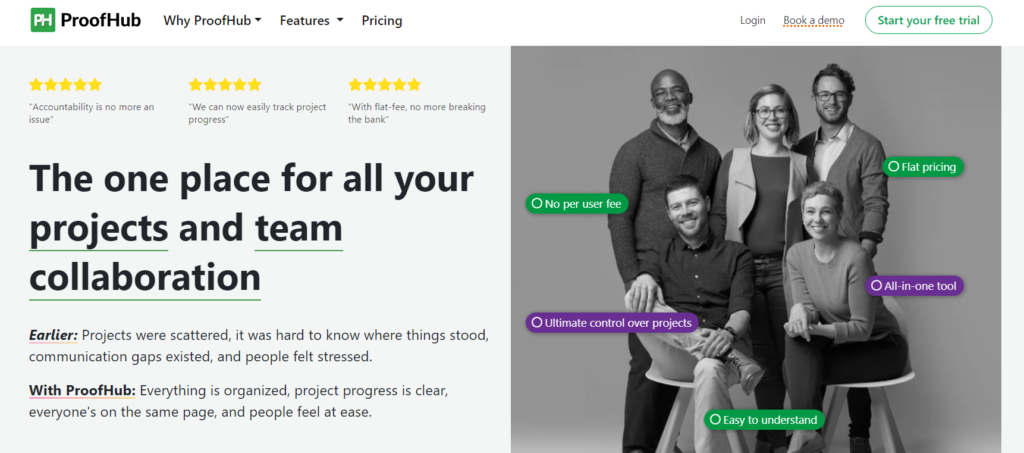
Additional Resources for Researchers
Furthermore, researchers can benefit from additional resources to enhance their research process and improve their academic skills. These resources include:
- ResearchGate: ResearchGate is a social networking site for researchers to share their work, collaborate with others, and find new research opportunities.
- Google Scholar: Google Scholar is a search engine that allows researchers to find scholarly literature, including articles, theses, books, and conference papers.
- PubMed: PubMed is a free search engine that provides access to biomedical literature, including articles, books, and reports.
- arXiv: arXiv is a repository of electronic preprints of scientific papers in mathematics, physics, astronomy, computer science, quantitative biology, statistics, and more.
- Sci-Hub: Sci-Hub is a website that provides free access to millions of scientific articles that are otherwise behind paywalls.
- Mendeley: Mendeley is a reference manager and academic social network that can help researchers organize their research, collaborate with others, and discover new research.
- Zotero: Zotero is a free, open-source reference manager that can help researchers collect, organize, and cite their research.
- Research4Life: Research4Life is a public-private partnership that provides free or low-cost access to scientific literature, including journals, books, and databases, to researchers in developing countries.
These resources can be valuable tools for researchers to find and access the information they need to advance their work.
Frequently Asked Questions
How Do AI Writing and Editing Tools Like Wordvice AI and AI Proofreader Enhance Writing Skills and Improve Writing Quality?
AI writing and editing tools like Wordvice AI and AI Proofreader enhance writing skills and improve writing quality by fixing spelling, punctuation, and style errors, paraphrasing and summarizing text, translating non-English sources, and providing accurate revisions and suggestions.
What Are the Key Features and Benefits of AI Research Assistance Tools Like Chatgpt, Scholarcy, and Researchrabbit?
AI research assistance tools like ChatGPT, Scholarcy, and ResearchRabbit offer key features such as answering research questions, suggesting papers and authors, generating ideas, summarizing articles, and visualizing connections between fields. These tools streamline the research process and enhance productivity.
How Can AI Publication and Formatting Tools Like Typeset.Io Assist Researchers With Manuscript Preparation, Citation Management, and Journal Selection?
AI publication and formatting tools like typeset.io assist researchers with manuscript preparation by providing templates, formatting tools, and citation management. They also help with journal selection and plagiarism detection, ensuring accurate referencing and streamlined publication processes.
What Advantages Do AI Literature Search and Citation Tools Like Scite.AI and AI Citation Generator Offer in Terms of Accurate Referencing, Citation Search Statements, and Visualization of Journal and Institution Metrics?
AI literature search and citation tools such as Scite.ai and AI Citation Generator offer advantages in accurate referencing, citation search statements, and visualization of journal and institution metrics, facilitating efficient research and ensuring high-quality citations.
How Do AI Data Analysis Tools Contribute to Data-Driven Decision Making, Pattern Identification, and Statistical Analysis for Researchers?
AI data analysis tools contribute significantly to data-driven decision-making, pattern identification, and statistical analysis for researchers. These tools extract insights from large datasets, identify patterns and trends, and provide statistical analysis, empowering researchers to make informed, evidence-based decisions.
Conclusion
Integrating AI tools in research has revolutionized how scholars approach their work, providing powerful capabilities that streamline and enhance their research processes.
AI writing and editing tools ensure impeccable writing quality and precision, while AI data analysis tools enable researchers to extract valuable insights from vast datasets.
Additionally, AI literature review and collaboration tools facilitate efficient information retrieval and summarising key findings. By harnessing the power of AI, researchers can unlock new possibilities and enhance productivity in their work.


